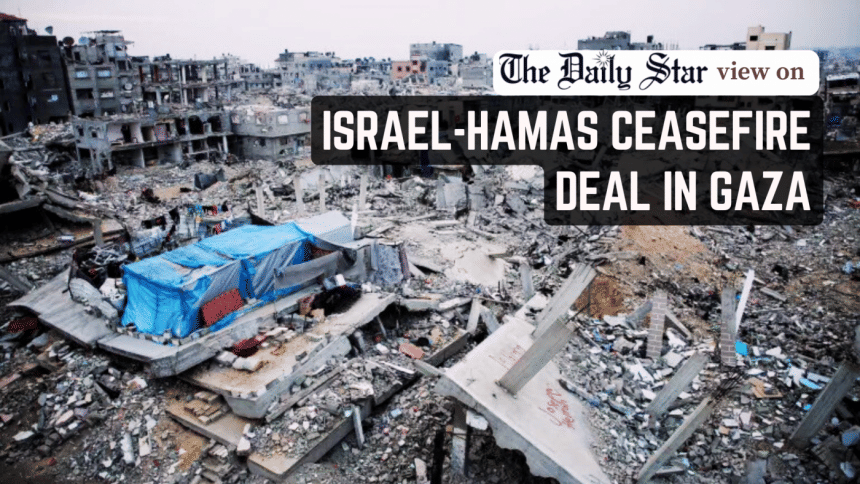Will the ceasefire in Gaza hold?

After fifteen months of relentless bombardment that has killed nearly 47,000 Palestinians—mostly women and children—the Israeli government has agreed to a ceasefire deal with Hamas, set to begin on Sunday morning. The agreement was brokered primarily by incoming US President Donald Trump (with support from the Biden administration), Egypt, and Qatar. While there is some relief that the horrific bloodshed in Gaza may finally come to an end, serious doubts still remain given the realities on the ground.
It is appalling that even after the ceasefire was announced on Wednesday night, at least 122 Palestinians, including 33 children, have been killed in Israeli attacks. What does this say about the future of the ceasefire deal, or the quality of the "peace" to be brought by it?
During the first and second stages of the deal, Israeli hostages will be released, with priority given to children, the sick, and the elderly, while hundreds of Palestinian women and children held in Israeli prisons will also be freed; humanitarian aid—largely withheld by Israel throughout the war—will also be allowed into Gaza. The third phase likely involves Gaza's reconstruction, supervised by Qatar and the UN, along with a full Israeli withdrawal from the Gaza Strip. However, given Prime Minister Benjamin Netanyahu's reliance on far-right coalition partners, there is reason to doubt whether Israel will fully relinquish control. Moreover, allowing Palestinians to return to northern Gaza—now reduced to rubble—feels like a cruel irony. What arrangements are being made to shelter them before their homes are rebuilt?
Israel's history of overwhelming and disproportionate retaliation, along with the unwavering support it received from the US and other Western nations, leaves room for scepticism about whether Palestinians will be treated fairly in this process. Still, as delayed as it is, a ceasefire is something the world—and especially the Palestinian people—desperately needs.
Israel's history of overwhelming and disproportionate retaliation, along with the unwavering support it received from the US and other Western nations, leaves room for scepticism about whether Palestinians will be treated fairly in this process. Still, as delayed as it is, a ceasefire is something the world—and especially the Palestinian people—desperately needs.
The international community now must extend full support for Gaza's reconstruction and recovery. The war's catastrophic consequences—including thousands of disabled, injured, and traumatised children, women, and men—must be addressed with urgent medical care, psychological support, and financial aid. Palestinians must also have the right to choose their own leadership and be free from Israeli control. Most importantly, the US and other Western nations must ensure that Israel does not renege on its commitments under the deal using any pretext.

 For all latest news, follow The Daily Star's Google News channel.
For all latest news, follow The Daily Star's Google News channel. 










Comments